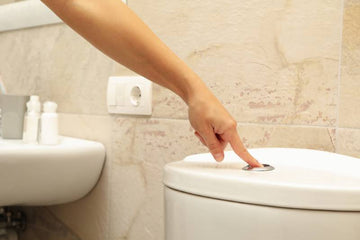As a renter, you might feel limited in your ability to make significant changes to your home that could save water and reduce your utility bills. However, there are numerous water-saving tips for renters that can help you play a crucial role in conserving this vital resource. Many of these strategies are simple and cost-effective, allowing you to contribute to environmental conservation while also decreasing your monthly expenses.
In this article, we'll explore various approaches to water conservation that are accessible to renters. From minor adjustments in daily habits to smart investments in water-efficient fixtures, these tips can help you make a positive impact without requiring major renovations or landlord approvals.

Understanding Your Water Usage
Before diving into specific water-saving strategies, it's essential to understand how much water you're using. This knowledge will serve as a baseline to measure the effectiveness of your water-saving efforts. Try to identify the areas in your rental property where water usage is highest. Common culprits include bathrooms, kitchens, and laundry areas.
Once you have an idea of your water consumption patterns, you can start implementing changes. For example, if you notice that your bathroom is a major water consumer, you can prioritize water-saving techniques in that area.
Simple Water-saving Tips
1. Fix Leaks Immediately
Leaky faucets and toilets can waste a significant amount of water over time. As a renter, it's important to report any leaks to your landlord immediately or, if possible, fix them yourself. According to the Environmental Protection Agency, fixing easily corrected household water leaks can save homeowners about 10% on their water bills.
For more insights on reducing toilet water waste, consider reading this article on reducing toilet water waste.
2. Install Water-saving Fixtures
While you might not be able to replace major appliances, you can easily install water-saving fixtures such as low-flow showerheads and faucet aerators. These devices reduce water flow without sacrificing performance, allowing you to save water with minimal effort.
For a deeper understanding of water efficiency in toilets, check out this guide on measuring toilet water efficiency.
3. Shorten Your Showers
Reducing the time you spend in the shower is an effective way to save water. Consider setting a timer and aiming for showers that last no longer than five minutes. This small change can lead to significant water savings over time.
4. Turn Off the Tap
Get into the habit of turning off the tap while brushing your teeth or washing dishes. This simple action can save gallons of water each day.
Investing in Water-efficient Appliances
If your lease allows, consider investing in water-efficient appliances. While this may require an upfront investment, the long-term savings on your water bill can make it worthwhile.
1. Washing Machines
High-efficiency washing machines use less water and energy compared to traditional models. If you have the option to bring your own washer, look for models with the Energy Star label.
2. Dishwashers
Modern dishwashers are designed to use less water than washing dishes by hand. If you're considering purchasing one, opt for a model with an energy-efficient rating.
Outdoor Water Conservation
If your rental property includes outdoor space, there are several water-saving strategies you can employ:
1. Use a Broom, Not a Hose
Instead of using a hose to clean sidewalks and driveways, use a broom. This simple change can save a significant amount of water.
2. Water Plants Wisely
Water your plants early in the morning or late in the evening when evaporation rates are lower. This helps maximize water absorption and reduces the need for frequent watering.
For more eco-friendly bathroom practices, explore these best practices for eco-friendly bathrooms.
Making a Sustainable Impact
By adopting these water-saving tips, renters can make a meaningful impact on their water consumption and contribute to broader environmental conservation efforts. These changes not only benefit the planet but also help reduce utility bills, offering a win-win scenario for renters and landlords alike.
For further advice on installing water-saving toilets, you can visit this guide.

FAQs
How can renters fix water leaks?
Renters should report leaks to their landlords immediately. If allowed, they can fix minor leaks themselves using basic tools and replacement parts available at local hardware stores.
What are some affordable water-saving fixtures for renters?
Renters can install low-flow showerheads and faucet aerators, which are affordable options that significantly reduce water usage without compromising performance.
Why is it important to save water as a renter?
Saving water helps reduce utility bills, conserve a vital resource, and contribute to environmental sustainability efforts. Renters can make a positive impact even without making major home renovations.






